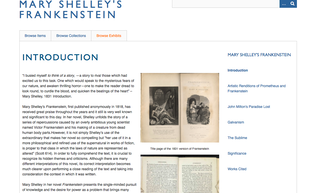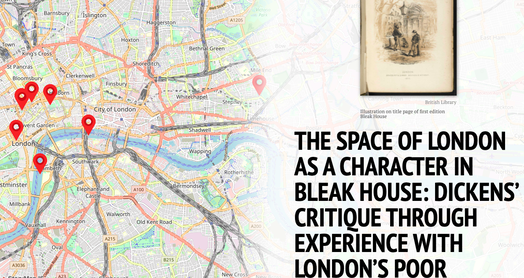I am committed to a decolonial pedagogy that is built upon relationality, accountability, and the co-construction of knowledge, that stems from the knowledge that relationships have identity consequences. Student success, therefore, requires support both within and beyond the classroom. I seek to provide this support through curriculum and course design, service, and personal engagement.
The course content that I choose engages with popular and global culture in creative ways and allows me to teach students that their ability to write and think critically about the world around them matters, that composition reaches beyond the page, and that the skills learned in becoming a critical thinker and an author are skills that can be used to have a positive impact on society. We approach literature and material culture from a lens critical of empire and settler colonialism, and from an understanding of the centuries of racial oppression that have shaped the literary canon, depictions of people of color, and our histories. In literature and composition classes, we employ anti-racist reading practices that move away from deciphering texts and toward examining the power structures that both produced texts and our responses to them.
The learning activities I design for my students encourage creative application of the critical thinking and composition skills they are learning and developing in any of my courses. These activities encourage engagement with social media and digital platforms, through which students can take their authorship beyond the classroom and see its applicability to everyday and professional life.
Recent Teaching-Related Awards and Recognition:
NASSR/Romantic Circles Pedagogy Contest Finalist: 2022. For an assignment on decolonizing the Romantic poetic canon.
Illinois College Donald P. Filson Faculty Award for Vision for the Future of the College: 2022. For collaborative anti-racist pedagogy work.
“Implementing Anti-Racist Pedagogy: Integrating Theory Across the Curriculum.”
Working at a Small Liberal Arts College during a global pandemic presented many challenges, but we fostered innovative pedagogy through a collaborative, interdisciplinary project entitled, “Implementing Anti-Racist Pedagogy: Integrating Theory Across the Curriculum.” I collaborated with Asian Studies Scholar Dr. Gwendolyn Gillson in Fall 2021 to create a curricular development support group that brought faculty from across campus together to support the teaching theory relating to social justice and anti-racism in the classroom. In particular, this workshop was designed to help faculty integrate work that connects students to other cultures, worldviews, and ways of being. We hope with our forthcoming publication, that this workshop can be used as a model to aid in the implementation of theory based, anti-racist pedagogy across disciplines in a format that is not dependent upon enrollment. Using this workshop as a basis, we are currently developing a digital resource for faculty. We hope that this will be a collaborative resource that will function across institutions, as a guide for implementing social justice and anti-racist theory in their pedagogy and curricula.
Relevant Presentations and Forthcoming Publications:
Wills and Romo, "General Education and the Future of Eighteenth-Century Studies.” WSECS. San Francisco, February, 2024.
Wills and Romo. “Teaching Literature at Community Colleges Now: Ethnic Studies and the Literature Curriculum." MLA. Philadelphia, January, 2024.
Wills and Romo. “Inclusive Language, Action-Oriented Anti-Racism, and Academic Freedom." MLA. Philadelphia, January, 2024.
Wills and Gillson. “’Implementing Anti-Racist Pedagogy: Integrating Theory Across the Curriculum’: Shaping Anti-Racist Scholarly and Pedagogical Practice through Developing Collaborative, Interdisciplinary, Cross-Institutional Resources." MLA. Washington, D.C., January, 2022.
Wills and Gillson. “Implementing Anti-Racist Pedagogy: A Workshop about Integrating Theory Across the Curriculum," Discover Education. (under review)
Relevant Presentations and Forthcoming Publications:
Wills and Romo, "General Education and the Future of Eighteenth-Century Studies.” WSECS. San Francisco, February, 2024.
Wills and Romo. “Teaching Literature at Community Colleges Now: Ethnic Studies and the Literature Curriculum." MLA. Philadelphia, January, 2024.
Wills and Romo. “Inclusive Language, Action-Oriented Anti-Racism, and Academic Freedom." MLA. Philadelphia, January, 2024.
Wills and Gillson. “’Implementing Anti-Racist Pedagogy: Integrating Theory Across the Curriculum’: Shaping Anti-Racist Scholarly and Pedagogical Practice through Developing Collaborative, Interdisciplinary, Cross-Institutional Resources." MLA. Washington, D.C., January, 2022.
Wills and Gillson. “Implementing Anti-Racist Pedagogy: A Workshop about Integrating Theory Across the Curriculum," Discover Education. (under review)
4 Sample Assignments
Social Media Profile and Character AnalysisThis assignment asks students to consider a novel’s characters in terms of characterization, social media culture, and identity. They then construct a social media profile for a chosen character (or characters) and write a reflective essay that analyzes their choices in constructing the character’s projected social media identity. This assignment builds upon critical thinking and analytical skills, as students make choices about the character’s identity and then explain their reasoning behind those choices in the reflective essay. In doing this, they also demonstrate knowledge of characterization, the novel form, and the relationship of our media-saturated culture today with the obsession with seeing and being seen that is so central to novels like Jane Austen's Emma.
|
Snapchat Narrative AssignmentResponding to Chimamanda Adichie’s discussion of the “Dangers of the Single Story,” students engage with historical and fictional narratives of global encounter and exploration in order to identify key narrative elements. Students then use Snapchat to construct their own narrative of an experience in a new place. Their corresponding written work then explores the potential of the digital medium for constructing narratives that resist the single story, as they analyze their experience alongside the context of the written narratives we have read as a class.
|
|



